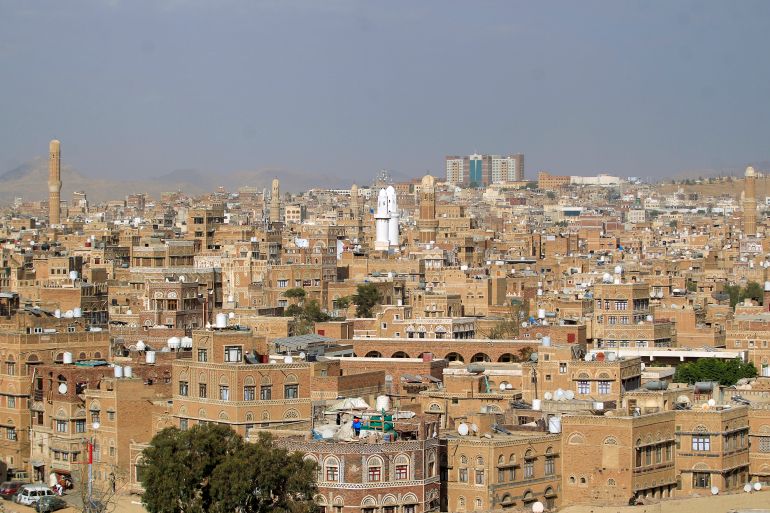Yemeni YouTubers sentenced to prison after criticising Houthis
Sentencing the three YouTubers is part of a continuing crackdown on dissent by the Iran-aligned rebel group.

A court in Yemen’s Houthi-held capital has sentenced three YouTubers to prison terms ranging from six months to three years after they published videos alleging abuses by the Iran-aligned fighters.
According to their lawyer, Waddah Qutaish, the three YouTubers, along with another man, were convicted on Tuesday of inciting chaos, disrupting public peace and insulting the Houthis.
Keep reading
list of 3 itemsHouthi rebels: 15 Saudis to be released in Yemen prisoner swap
As Saudi Arabia and Houthis talk, Yemen’s government is sidelined
They were detained in Sanaa in December and January on charges stemming from videos they had posed on social media last year criticising the Houthis over alleged corruption and their handling of the economy.
The rebels control Sanaa and most of northern Yemen. The YouTubers’ arrest and trial are part of the Houthis’ crackdown on dissent.
Critics are often accused, often with little evidence, of working for the Saudi-led coalition, which has been battling the Houthis in Yemen’s civil war since 2015 in an effort to restore the internationally recognised government to power.
The Houthis seized control of Sanaa, the capital of Yemen, in 2014, and have ruled it, along with much of northwestern Yemen, since.
One of the YouTubers, Ahmed Allaw, was sentenced to three years while another, Mustafa al-Mawmari, got a year and a half. Ahmed Hajar, the third YouTuber, was sentenced to a year, while the fourth man, Hamoud al-Mesbahi, was sentenced to six months, the defence lawyer said.
The court also ordered the closure of the activists’ YouTube channels and fined them each 10 million Yemeni riyals ($40,000), Qutaish added. He denounced the verdict as “politically motivated,” and said he would appeal.
In December, Hajar, was the first of the group arrested after he accused the Houthis of “robbing the Yemeni people”, in a video watched about half a million times.
The Houthis have increasingly limited individual liberties, including free speech and the movement of women in areas they control.
The sentences came a day after Houthi-controlled media released videos of the men renouncing their earlier criticisms of the rebels.
The latest footage sparked an uproar among some Yemenis, who claimed the statements had been coerced.
The sentences also followed Monday’s announcement of a prisoner exchange agreed upon between the Houthis and Yemen’s government, after talks overseen by the United Nations and the International Committee of the Red Cross in Switzerland.
The deal covers more than 800 conflict-related prisoners, including journalists captured by the fighters, according to Yemeni government officials, as well as 15 Saudis, according to Houthi officials.
A UN-brokered ceasefire that took effect in Yemen last April brought a sharp reduction in hostilities. The truce expired in October, though fighting largely remains on hold.